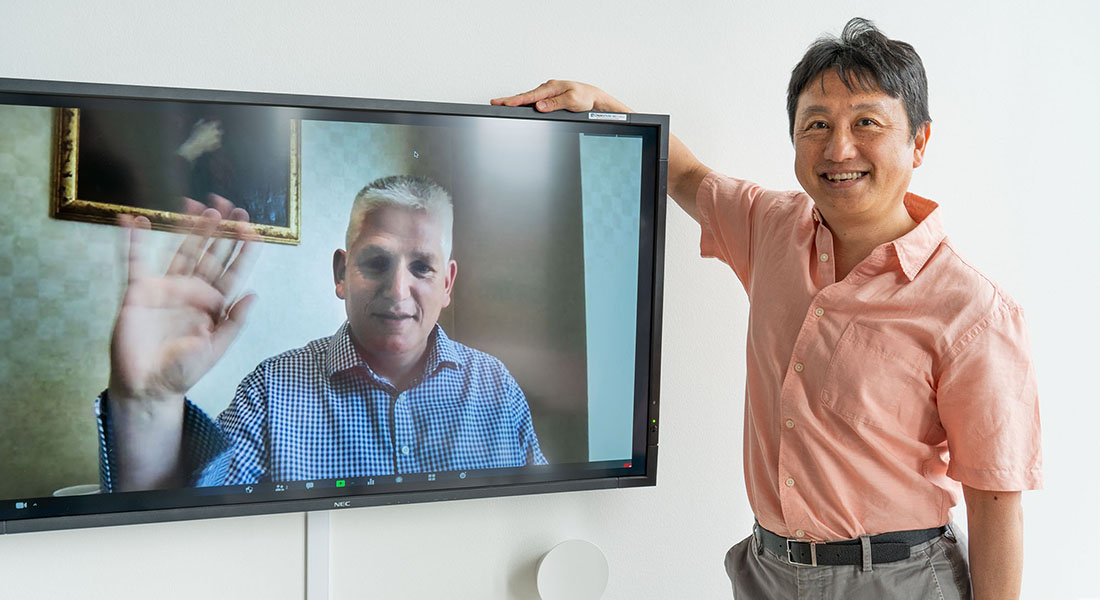Metabolism and cell signaling research alliance launched with University of Dundee
CBMR joins the University of Dundee in a three-year alliance to accelerate discoveries on molecular metabolic signaling in control of glucose homeostasis. The alliance involves knowledge, skills and technology sharing and two joint postdoctoral positions

We are proud to announce the launch of an International Research Alliance between the Medical Research Council Phosphorylation and Ubiquitylation Unit (MRC PPU), at the University of Dundee, and the Novo Nordisk Foundation Center for Basic Metabolic Research (CBMR), at the University of Copenhagen.
The three-year strategic partnership allows the labs in Copenhagen and Dundee to share complementary skills, grant access to state-of-the-art technologies, and work and publish together. The ambition is to accelerate scientific discoveries, specifically new knowledge on the fundamental molecular and physiological mechanisms by which energy and nutrient sensing enzymes regulate metabolic processes linked to glycemic control.
Professor Kei Sakamoto, the alliance partner at CBMR, says: “I feel so excited and privileged to initiate this International Research Alliance with MRC PPU in Dundee – a world-leading research institute in cell signaling linked to human diseases. Their in-depth knowledge on molecular signaling coupled to cutting edge technologies and molecular tools will enable and accelerate discoveries on molecular metabolic signaling in control of glucose homeostasis.”
A new model for scientific interaction
The MRC PPU was established to make a critical contribution to biomedical research, leading to a deeper understanding of diseases and how to treat them. Their research focuses on regulation of eukaryotic cell biology and human disease by protein phosphorylation and ubiquitylation.
With core funding from the UK’s Medical Research Council, MRC PPU operates as a focal point between leading life scientists, pharmaceutical companies and clinicians.
Director and Professor Dario Alessi explains that the agreement is a new model for scientific interaction between the MRC-PPU and an academic partner. During the alliance, two postdocs will be appointed to the allied laboratories to work on joint projects. The postdocs will be primarily based in Dundee, but also have the opportunity to work in the Sakamoto Group in Copenhagen during their fellowships.
"We are incredibly excited to enter into a new research alliance with the Sakamoto Group at CBMR,” says Professor Dario Alessi. “Our goal is to develop new technologies and research projects to better understand how glucose homeostasis is regulated by energy-sensing enzymes that is key to developing improved treatments for metabolic diseases such as type 2 diabetes."
Reunited to investigate the energy sensor AMPK
The alliance is a reunion, of sorts, for Professor Kei Sakamoto and Professor Dario Alessi. 17 years ago, Professor Sakamoto was hired as Postdoctoral Fellow in Professor Alessi’s group at the MRC PPU in Dundee. During his fellowship, Professor Sakamoto identified how the energy-sensing enzyme called AMPK is “switched on” to promote glucose absorption into muscles in response to exercise. Professor Sakamoto subsequently became an independent investigator and published numerous papers on the molecular and physiological roles and regulations of AMPK.
Through the alliance, the Sakamoto Group will team up with Professor Alessi and Dr. Gopal Sapkota at MRC PPU to identify the mechanisms and means to control AMPK activity through state of the art genetic and protein engineering methods.
CBMR expects to form new International Research Alliances in the coming years based on the Center’s strategic development.
